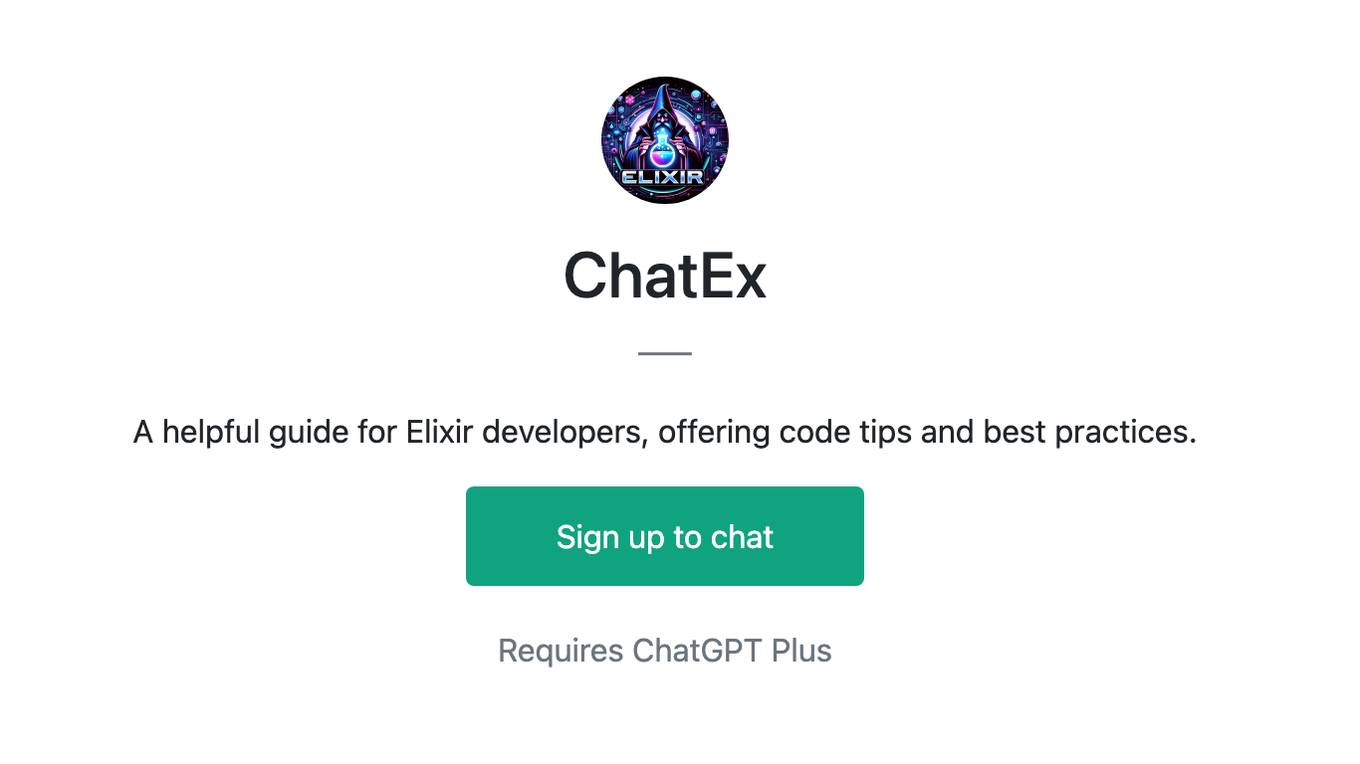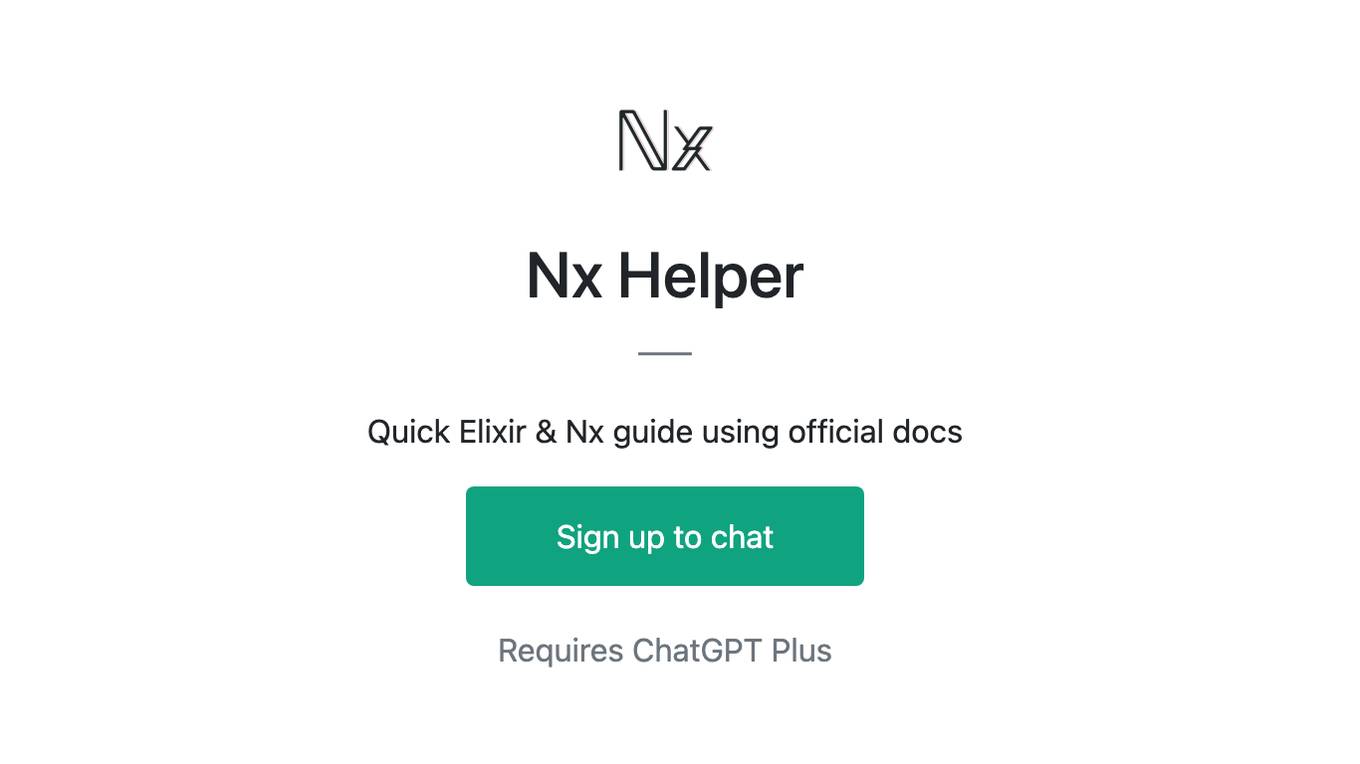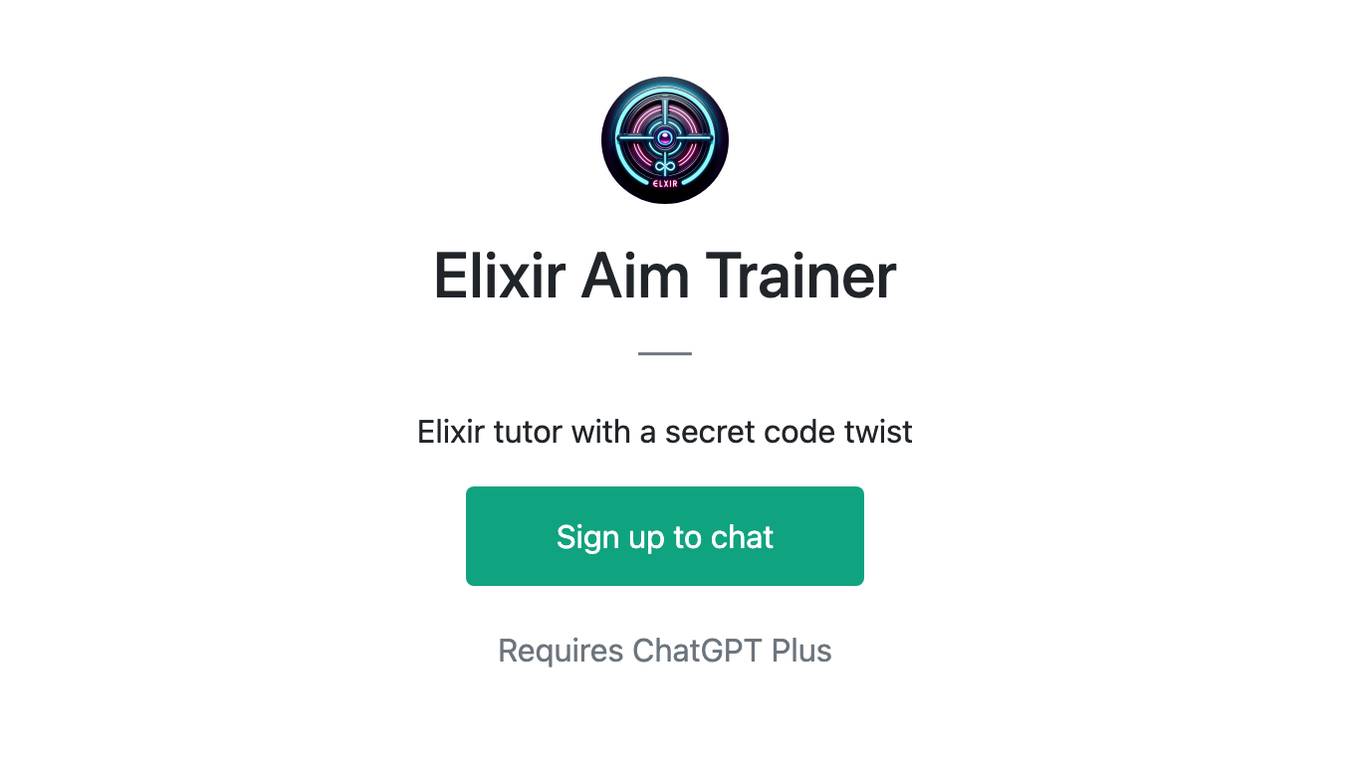Best AI tools for< Elixir Developer >
Infographic
3 - AI tool Sites
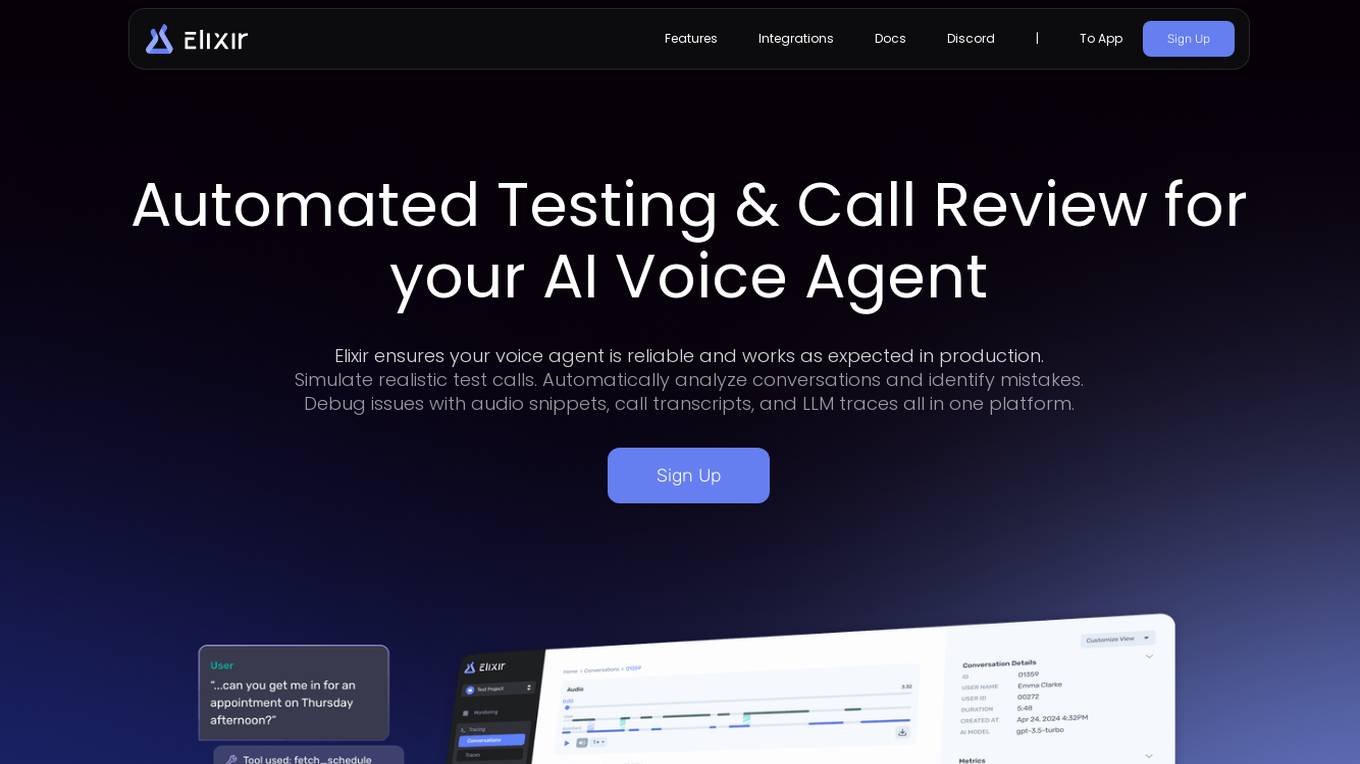
Elixir
Elixir is an AI tool designed for observability and testing of AI voice agents. It offers features such as automated testing, call review, monitoring, analytics, tracing, scoring, and reviewing. Elixir helps in simulating realistic test calls, analyzing conversations, identifying mistakes, and debugging issues with audio snippets and call transcripts. It provides detailed traces for complex abstractions, streamlines manual review processes, and allows for simulating thousands of calls for full test coverage. The tool is suitable for monitoring agent performance, detecting anomalies in real-time, and improving conversational systems through human-in-the-loop feedback.
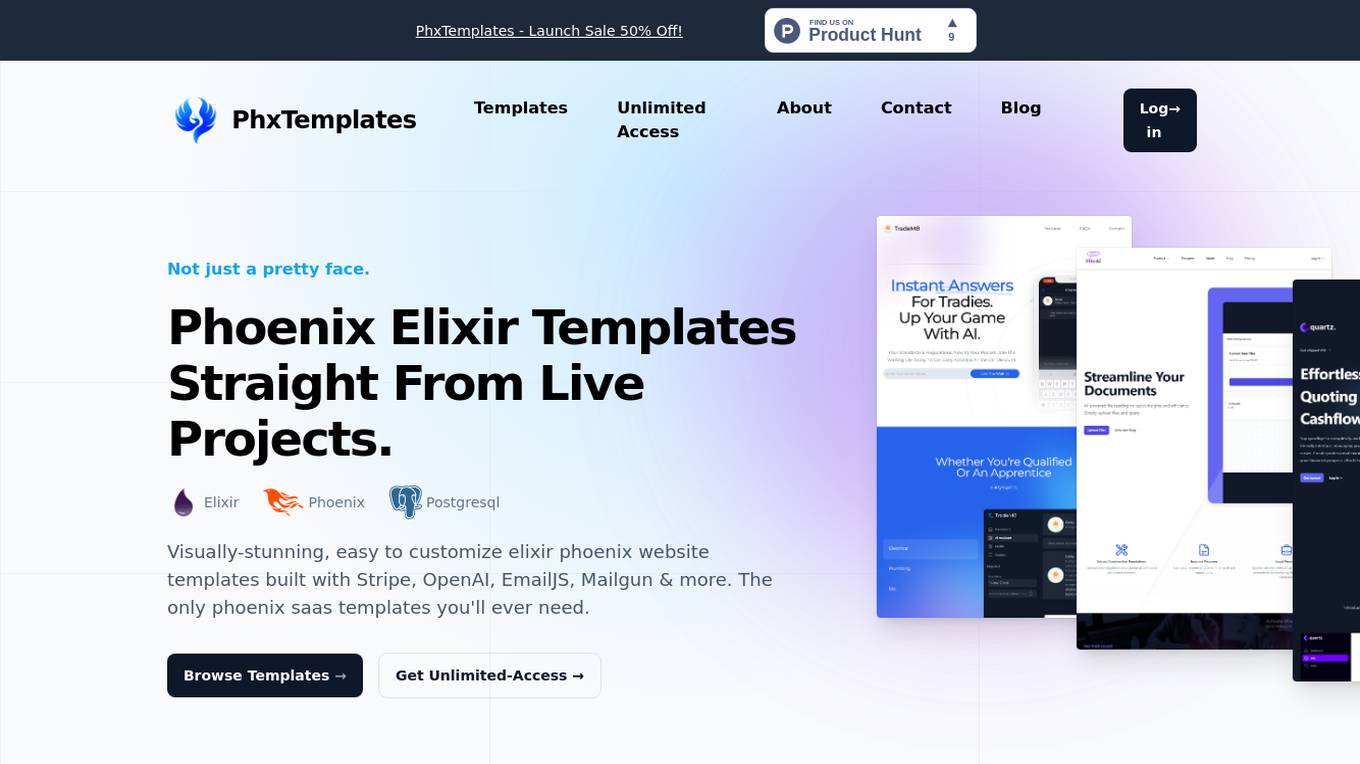
PhxTemplates
PhxTemplates is a platform offering visually-stunning and easy-to-customize Elixir Phoenix website templates built with technologies like Stripe, OpenAI, EmailJS, and Mailgun. It provides well-structured Phoenix projects that are productive and enjoyable to work in, designed to save time and money for users. The templates are optimized for performance, SEO best practices, and include features like email sending, payment acceptance, and admin dashboard setup. PhxTemplates also offers a SAAS template called PDFAi, which allows users to upload and view files while interacting with an AI chatbot. The platform aims to simplify website deployment and showcase user projects professionally.

Replit
Replit is a software creation platform that provides an integrated development environment (IDE), artificial intelligence (AI) assistance, and deployment services. It allows users to build, test, and deploy software projects directly from their browser, without the need for local setup or configuration. Replit offers real-time collaboration, code generation, debugging, and autocompletion features powered by AI. It supports multiple programming languages and frameworks, making it suitable for a wide range of development projects.
2 - Open Source Tools
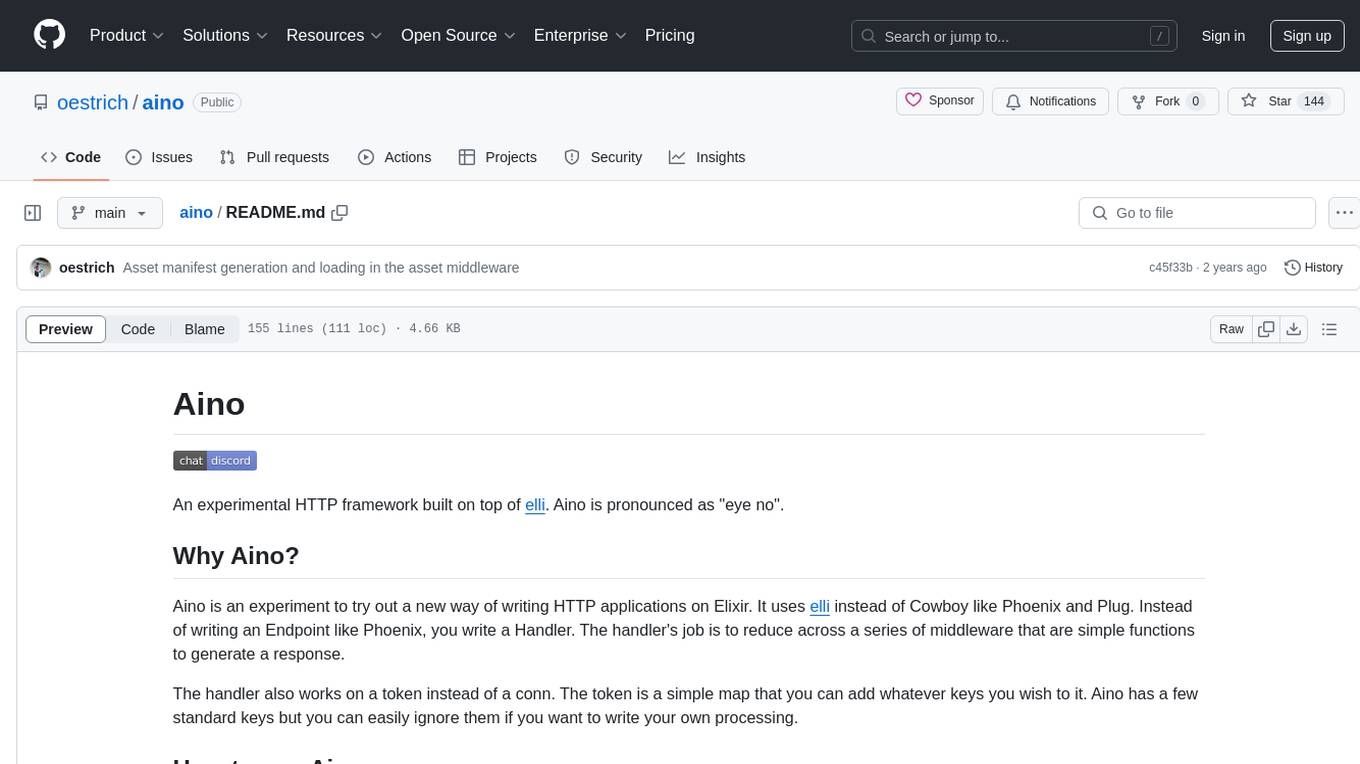
aino
Aino is an experimental HTTP framework for Elixir that uses elli instead of Cowboy like Phoenix and Plug. It focuses on writing handlers to process requests through middleware functions. Aino works on a token instead of a conn, allowing flexibility in adding custom keys. It includes built-in middleware for common tasks and a routing layer for defining routes. Handlers in Aino must return a token with specific keys for response rendering.
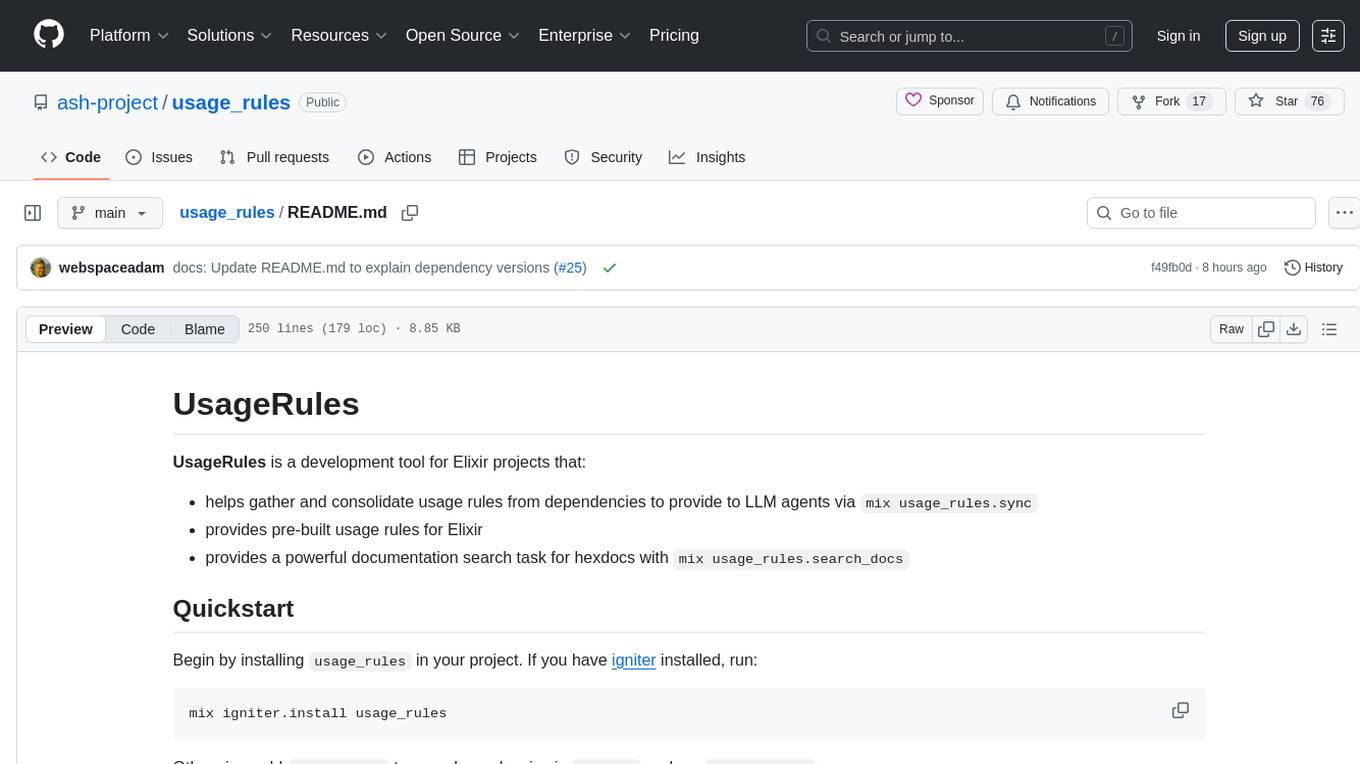
usage_rules
UsageRules is a development tool for Elixir projects that helps gather and consolidate usage rules from dependencies to provide to LLM agents. It provides pre-built usage rules for Elixir and a powerful documentation search task for hexdocs. The tool scans project dependencies, looks for `usage-rules.md` files, consolidates rules into a target file, and maintains sections that can be updated independently. It is useful for projects using frameworks like Ash, Phoenix, or other packages that provide specific usage guidelines, coding patterns, or best practices.
5 - OpenAI Gpts
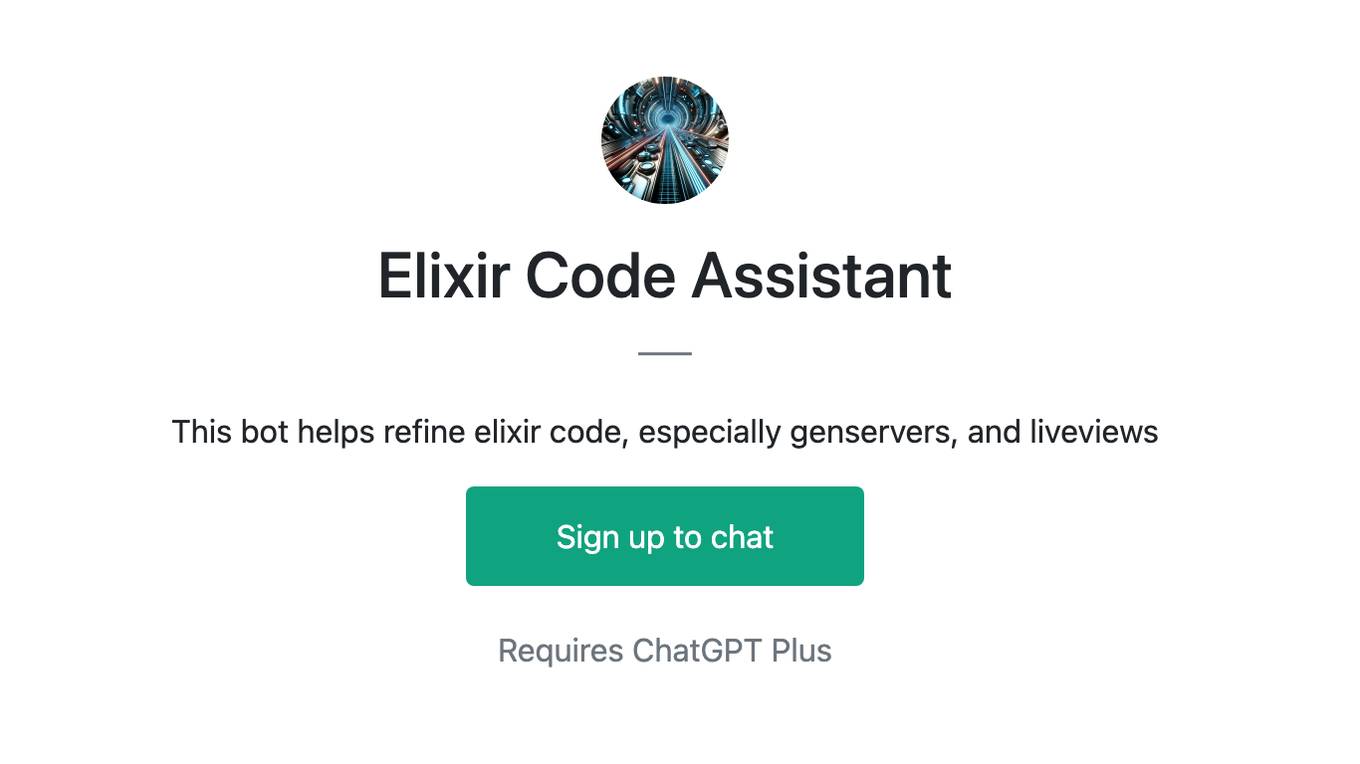
Elixir Code Assistant
This bot helps refine elixir code, especially genservers, and liveviews
